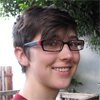Drupal ninja
Field API and Fields in Core
Submitted by bjaspan on Wed, 07/02/2008 - 16:45.Session recording
Overview
The session will introduce the Field API intended for Drupal core. The Field API supports "CCK fields in core" as a new central concept for organizing content as an eventual replacement for the Node API model.
Agenda
* Motivation for Fields in core
* Design goals for the Field API
* Current status of the Field API
* Fields on remote data and the semantic web
Goals
Attendees should leave this session understanding what the Field API is, how it will work, and how to use it to create custom content types programmatically.
Resources
Attendees should be familiar with node types and how to use CCK user interface to define custom content types with fields.
- Login to post comments
- 48 points
State of Drupal
Submitted by Dries on Wed, 07/02/2008 - 09:47.Session recording
An update on the State of Drupal.
- 3 comments
- 113 points
A Roadmap for Mapping: GIS on Drupal in 2008 and Beyond
Submitted by bec on Tue, 07/01/2008 - 03:35.Session recording
Overview
This session will be presented by the maintainers of the Location and GMaps modules. Updated, stable versions of these modules will be released this summer, and we will talk specifically about the capabilities of these modules. We will also address the roadmap for growing these modules into a broader GIS/mapping platform for Drupal.
Agenda
- GMap and Location updates--stability, new features, api features
- current GIS/Mapping capabilities with GMap and Location--what we can do with Drupal right now
- GIS/mapping platform goals--what we want to be able to do with Drupal
- technical roadmap--a clear technical plan to meet those goals
Goals
The goal of this session is to engage people with the current evolution of Drupal mapping by sharing what is currently possible, and to get community buy-in on Drupal as a GIS/mapping platform by presenting a clear set of goals for the near future.
Resources
The State of Geospatial in Drupal:
http://groups.drupal.org/node/12485
Drupal mapping group:
http://groups.drupal.org/mapping
Location module:
http://drupal.org/project/location
GMap module:
http://drupal.org/project/gmap
Geo module:
http://drupal.org/project/geo
OpenLayers module:
http://drupal.org/project/openlayers
- Login to post comments
- 29 points
Imagefield Gallery -- A path to easy galleries in Drupal
Submitted by EclipseGc on Tue, 07/01/2008 - 00:48.Overview:
Imagefield Gallery is a module that's been around since shortly before Drupalcon Boston. I created it with the intent of making gallery management for an existing site easy for single nodes. Since that time others have used it for their own sites, and have extended it to work with proprietary gallery types that have not been contributed back. I would like very much to introduce the drupal community at large to imagefield gallery and encourage them to help develop it in a direction that could be beneficial for ALL of drupal, not just a small subset.
As stated above, imagefield gallery's primary purpose is to create galleries on a node from an existing imagefield. The new 2.x version cleans up the admin, and is striving to squash some old bugs, and add new features. In development is the ability to do node references, as well as a new gallery type. Imagefield Gallery makes creating new gallery types pretty easy and straight-forward. These gallery types are re-usable in a large number of instances and allow the site administrator to customize gallery types per content type.
Agenda
- Current Capabilities
- What I'd like to see donated by the community
- What about D6?
- What could the future hold?
Goals
Ultimately the objective of this session is to introduce Drupal at large to the Imagefield Gallery module, and show them what it can do for them. With some help I believe imagefield gallery can fill a significant void in the current Drupal codescape and give Drupal a varied and significant gallery system upon which to draw.
Resources
Project Page:
http://drupal.org/project/imagefield_gallery
Development/News Blog:
http://www.worxco.com/blog-categories/imagefieldgallery
- Login to post comments
- 28 points
Drupal 6 menu system - architecture, do, don't and tricks
Submitted by pwolanin on Mon, 06/30/2008 - 04:32.Session recording
Overview
The Drupal 6 menu system has a fundamentally different architecture from what was present in Drupal 5. This session is designed to highlight the key features of the new system, and give some code-level examples of how to use them well and what to avoid.
Agenda
* How does Drupal 6 serve paths and render links
* When are the menu hooks called
* When to define a router item
* Examples of bad code
* Examples of good code
* Advanced tricks and tips
Goals
By the end of this session I hope you will have thrown off the shackles of your Drupal-5-based thinking about the menu system and be ready to use the features and be aware of the limitations of the Drupal 6 menu system.
Resources
You should be familiar with writing a hook_menu implementation and preferably the {menu_router} and {menu_links} tables to get the most of this session
- 1 comment
- 76 points
BoF: Porting contrib modules to D6.x
Submitted by demeester_roel on Sat, 06/28/2008 - 15:59.Overview
Drupal 6 is out now for almost 5 months, but a lot of modules haven't been ported to D6. Yet people seem to screaming for them and with cck and views 2 almost being ready, maybe it's time to join forces and help out other contrib module maintainers.
Agenda
- This is an all-day code hacking session !
- Introduction on porting. What, Why and How?
- Agenda of the day. How will we succeed
- Choosing the modules
- Get help
- Contribute patches
- We expect to port 1 module for every 2 attendees
Goals
Although it's nice that all attendees will become known as experts in drupal module porting, our ultimate goal is to get as many modules ported by the end of the day.
Resources
- Attendees should already be capable of creating drupal modules
- http://drupal.org/node/114774 is an invaluable source of information for developers
- http://groups.drupal.org/contributed-module-status will be used to prepare a list of work.
- http://realize.be/joined-forces-porting contains the initial idea
- 1 comment
- 15 points
Testing, part 2: Awesome testing party!
Submitted by webchick on Sat, 06/21/2008 - 15:51.Session recording
Overview
So now that you understand the basics of testing, it's time to put that knowledge to the test (heh, heh) -- and win awesome prizes!
This session is a working session for all developers to come and have fun writing tests. If you know any PHP, this session is for you!
Agenda
* All attendees break into pairs.
* Hand-outs with testing instructions will be provided, and experts on hand to run around answering questions.
* Index cards are provided with a list of Drupal core functions on them that lack tests.
* Run up, grab a card, sit down and write a test with your partner.
* When it's done, submit a patch, grab another card.
* Dorky prizes will be given away for things like most tests written, most well-written test ;), craziest function that had to be tested, etc.
Goals
The goal of this session is to provide a fun environment for people to learn the ropes of testing and contributing to core, to work directly with some of the big names in the Drupal community, and possibly to even get some actual work done! ;)
Resources
While not mandatory, you'll have an easier time in this session if you're familiar with the basics of testing. Luckily, Testing, part 1: Intro to testing will give you all the tools you need. :)
- 4 comments
- 53 points
Testing, part 1: Intro to testing
Submitted by webchick on Sat, 06/21/2008 - 15:44.Session recording
Overview
Testing saves time, allows you to provide code-level checking for your clients' crazy requirements, documents how your code is supposed to work, frees you to refactor your code without fear of breaking things, and ensures you never get the same bug twice. Sounds great! But how do you get started?
This session will provide an intro to testing for developers who've never touched it before, in preparation for Testing, part 2: Crazy testing party!
Agenda
* What is testing?
* Why is it awesome?
* What tools do I need?
* How does it work?
* How do I write tests?
Goals
Attendees will leave this session with an understanding of how testing works at a broad level, and how to write a basic test. They'll be provided with hand-outs with more detailed information.
Resources
* http://drupal.org/simpletest
* http://www.lullabot.com/articles/introduction-unit-testing
* http://cwgordon.com/how-to-write-automated-tests-for-drupal
- Login to post comments
- 65 points
Summer of Code Showcase
Submitted by webchick on Sat, 06/21/2008 - 15:15.Session recording
Overview
This session will show off the results of Drupal's Google Summer of Code 2008 projects. Students who make it to Drupalcon will be demoing their own projects, and we'll also show off projects from the students who can't be there.
Agenda
The following projects will be shown during the course of the session, as time permits.
- Apache Solr Improvements
- New Aggregator for Drupal core
- Bookings API
- Charts module Views integration
- Color module improvements
- Document Import Module
- Embed Widgets
- Revamped Help system
- Icon module
- Image manipulation GUI
- Memetracker
- New nodequeue sub-modules
- OAuth/Services module integration
- Open ID Attribute Exchange
- PluginManager
- Core search improvements
- Security scanner
- Usability Suite
- Validation API
- Version Control API / Project module integration
- Views datasources
Goals
This session will allow Summer of Code students to show off their hard work, and for the Drupal community to get a first-hand look at all the cool stuff that was produced over the summer. Summer of Code students typically make excellent employees as well, for those looking to hire. ;)
---
NOTE TO ORGANIZERS: I put down "90 minutes" because that'd be a much more comfortable time frame during which to show off 21 projects. But every other year we've managed to do it in 60, so if 90 minute slots are short, you can push the time allotment back.
- 5 comments
- 37 points
Drupalchix
Submitted by webchick on Sat, 06/21/2008 - 14:31.This will just be an informal gathering of the women who make it to Drupalcon: the Drupalchix (also known as the "7% club" ;)).
We did this in Barcelona and Boston, and it was awesome. :D
Topics might include things like:
* What are our various backgrounds/experiences prior to coming to Drupal?
* What is it that we’re currently working on?
* What have our experiences in the community been like?
* What can we do to encourage more women in open source/Drupal specifically?
- 1 comment
- 16 points


 Current Conditions:
Current Conditions: Stay informed with the
Stay informed with the 






